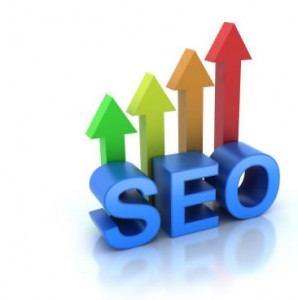 As a search engine marketing company, we are often asked by clients and prospects which is better, should we choose Search Engine Optimisation (SEO) or go for paid advertising, Pay-Per-Click (PPC) traffic. Do we have a preferance of one over the other or whats our thinking when it comes to organic search engine optimization and paid search advertising.
As a search engine marketing company, we are often asked by clients and prospects which is better, should we choose Search Engine Optimisation (SEO) or go for paid advertising, Pay-Per-Click (PPC) traffic. Do we have a preferance of one over the other or whats our thinking when it comes to organic search engine optimization and paid search advertising.
“Is one tactic more favorable than another? How do I know which channel to pursue? Should I do both?”
Without a hard look at your company’s goals and unique situation, there really isn’t a concrete answer to these questions. The true test of pursuing either an SEO campaign or PPC advertising (or both) is knowing that it all boils down to your company, it’s ROI objectives, budget, and countless other monetary and marketing factors. To determine which, or what combination of both, might offer the most bang for your buck, let’s examine five types of “models” that my search engine marketing company often deals with.
1. SEO Only.
Some clients are strictly interested in kicking off an SEO campaign, usually for a few basic reasons. They often have tried pay-per-click and decided it didn’t work, so they aren’t interested in trying it again in the foreseeable future (whether the initial campaign was set up effectively and the channel should be revisited is a subject for future discussion). They also often feel that since they themselves ignore PPC ads on the right hand side of the page, everyone else must do the same.
While there’s nothing inherently wrong with pursuing search engine optimization exclusively, it can take awhile to achieve rankings for competitive, profitable keyphrases, and there’s simply no way for your search engine marketing company to accurately predict (as they probably can with some degree of accuracy with PPC advertising) exactly what the initial results will be, and precisely when they will appear. However, for companies which do not have an immediate sense of urgency in their online marketing initiatives and who for whatever reason do not want to pursue PPC, organic SEO still offers a great, albeit slightly delayed, return on investment.
2. PPC Only.
Alternatively, a search engine marketing company may encounter the clients who are primarily interested in PPC … and nothing else. Even with a limited spend, clients can turn their campaigns on and off as needed, making market segments easier to control than with an SEO campaign. Pay-per-click also allows clients to achieve a somewhat predictable ROI if the campaign is managed effectively: “If I spend X, I’ll get back Y.”
The clients that fall within the ‘PPC advertising only’ category may have worked with a search engine marketing company before, pursuing SEO exclusively, and achieved less than stellar results. Despite all the positive press hyping up what search engine optimization can do for website visibility in recent years, it still tends to be viewed as more voodoo than science by most companies pursuing online marketing for the first time. With such companies, organic SEO is usually a topic we broach after achieving success with PPC.
3. SEO with PPC Stopgap.
The first and most common question a search engine marketing company may hear concerning an SEO campaign is how long it will take to achieve results. Naturally, clients want to be able to see the investment almost immediately.
This is where the PPC stopgap approach comes in. Though a client’s budget is usually fixed, they are often willing to spend a little more on the front end to see immediate results. Once positive results are evident, PPC spending is scaled back as SEO takes hold. An advantage of this approach to clients with limited budgets is that it can be managed on a very granular level. When top organic results are achieved for a given keyphrase, PPC bidding for that term can cease. Over time, PPC expenditures can theoretically be eliminated entirely. This model appeals to those who want a wide range of coverage and immediate results but have a fixed monthly budget that they do not control.
4. Hybrid Model.
A hybrid model is similar to a stopgap model, except that the client has no intention of eventually leaving the PPC arena entirely. Rather, the client has their search engine marketing company do a full on optimization AND paid search campaign at the outset, with the expectation that PPC costs will be reduced but not eliminated as the organic campaign takes hold.
In this model, a client recognizes that in an organic SEO campaign, they will be limited in the number of keyphrases that they can target by the amount of real estate on their website. With a PPC campaign, however, there is no downside to targeting thousands upon thousands of relevant “long tail” keyphrases, that is, search terms that are comprised of longer strings of words. Using the hybrid model, a company removes keyphrases from the PPC campaign on a granular level as they achieve top organic results for those phrases, but continue to bid on keyphrases that the site does not currently target.
5. Full Out SEM.
This approach calls for both SEO and PPC initiatives running at full speed. These types of clients are generally those that consider these two efforts as separate ‘beasts’ and frankly believe that showing up highly in both channels is a good thing…as long as the return justifies the spend.
These clients are happy to spend as much as possible with with their search engine marketing company and do not usually have a set marketing budget – just strict ROI objectives. As long as each channel is performing within acceptable ranges, they are happy to reap the benefits. Generally, they treat the two disciplines as unique channels and monitor the results independently.
Choosing the Right Model
Which approach is right? It depends (you weren’t expecting a definitive answer, right?). The decision between SEO efforts vs. PPC advertising depends on means, goals, budget, comfort level, corporate restrictions, and many other elements. Keep in mind that these are only five possible models that we often encounter. Many clients do not fit neatly into any of these scenarios. Some clients may start out with one option and evolve into another. Some switch back and forth depending on their own ever-changing situation. The most important thing is to be aware of your options and pursue a path that fits your current goals.
If you are new to Search Engine Optimisation (SEO) and would know how you can take advantage of a well optimised website then be sure to check out our SEO services. Click the link to go there now.
Article By: Scott Buresh












You really saved my skin with this ifnomration. Thanks!
Yup, that shloud defo do the trick!